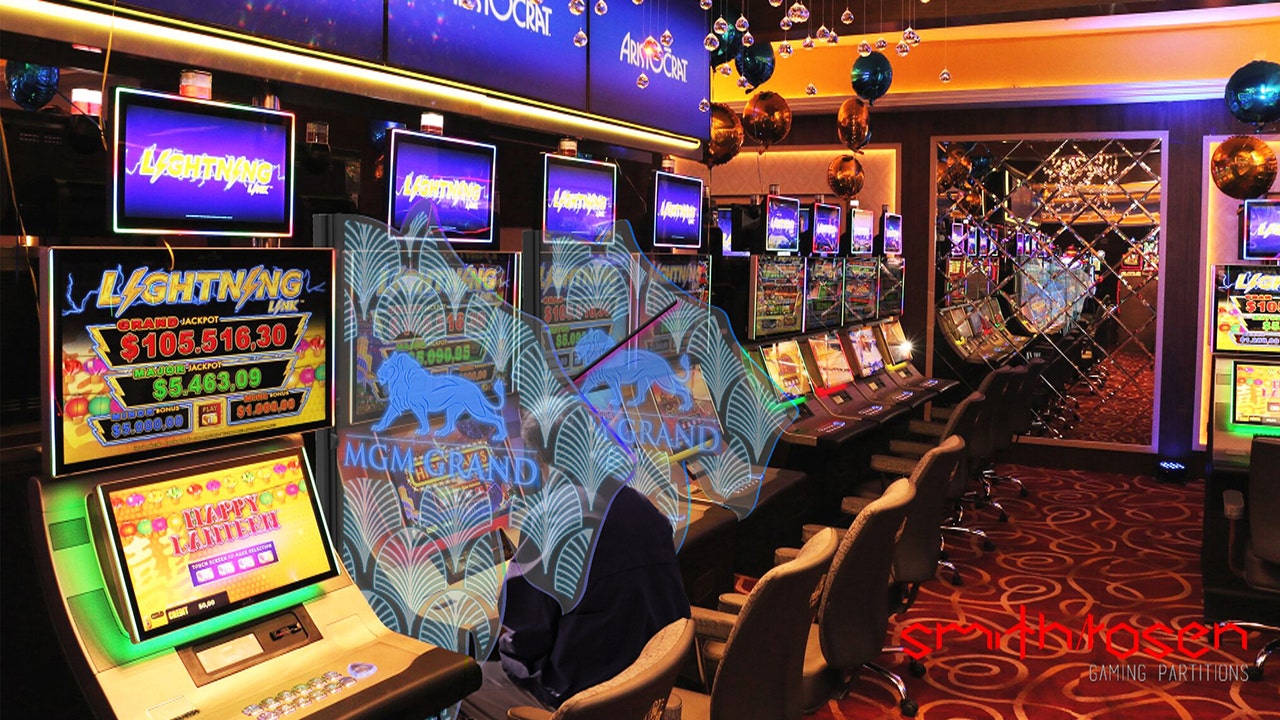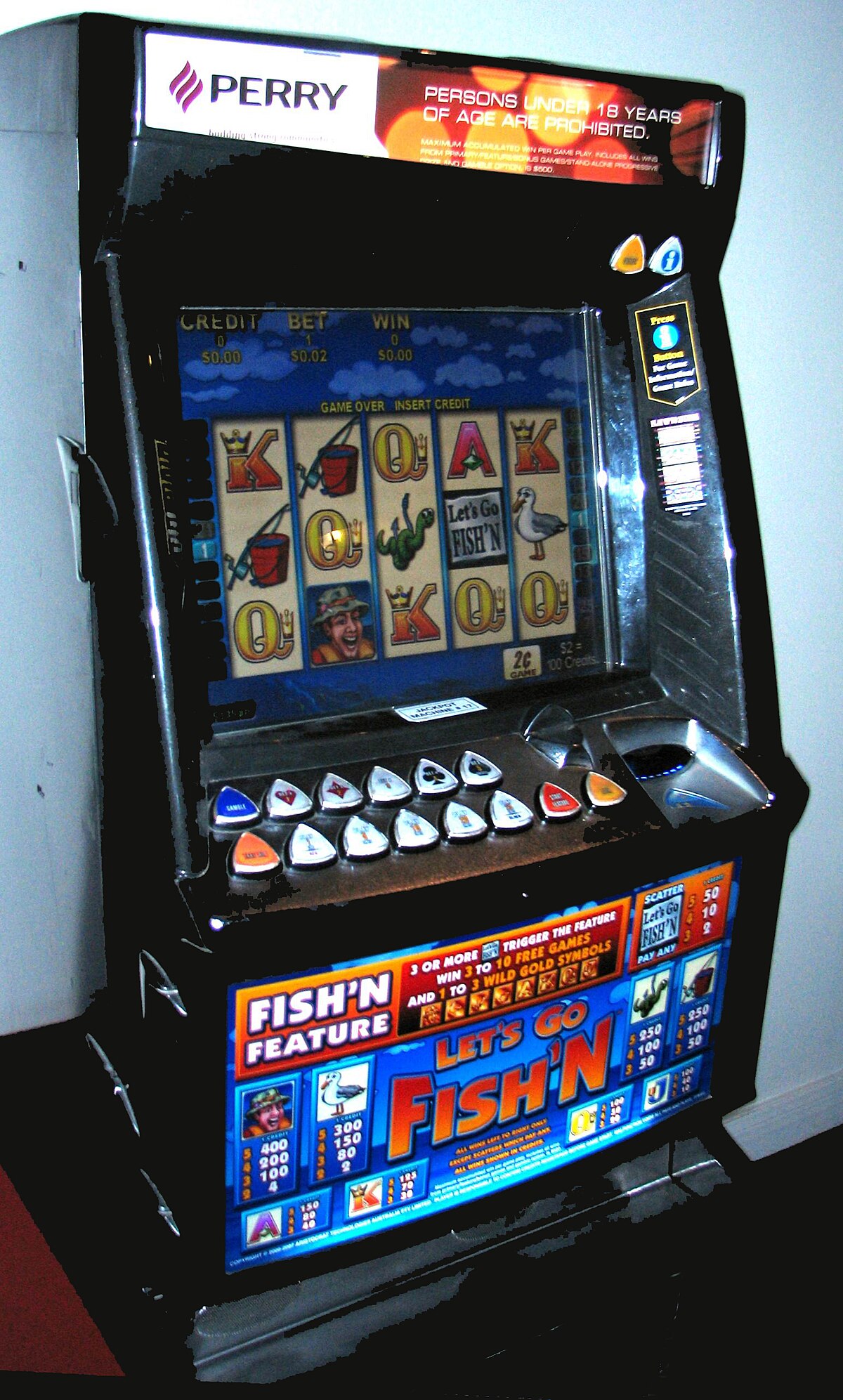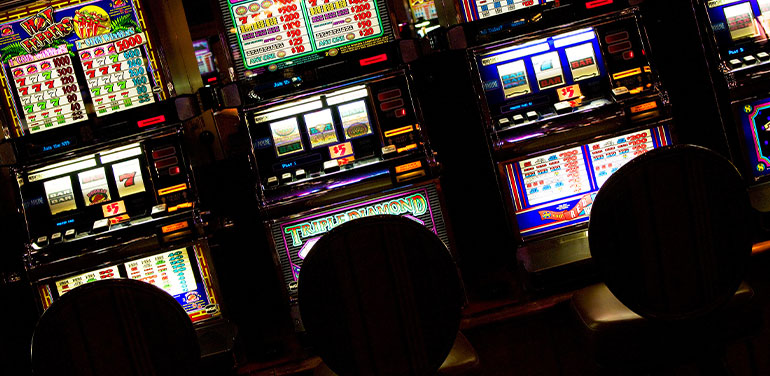Pokie Machine
Bally started making land-based poker machines in 1936 and over the decades have forged a reputation of building innovative and cutting edge games. They entered the online market around ten years ago and have not looked back since – Bally are one of the most popular pokie makers on this site – check out their games here.
- Most Popular Pokie Game Developers. It will not have escaped your notice that there are literally hundreds of different pokie game developers whose Pokie machines can be found available at both online and mobile Pokie sites, and as such we have plenty of games from each Pokie game developer.
- Pokies Machine Repair and Refurbishing At Pokiemachines, we take pride in our work and are able to handle all repairs, refurbishing and distribution of machine parts and accessories. We are Queensland’s premier resource for anything pokies related – if we can’t fix it, nobody can! Experienced Repair and Distribution Team.
- How to trick a pokie machine in Australia and whether it is possible You might have seen some Hollywood films, where unremarkable dudes win big by cheating the casino. They count cards in card games, they wait closer to pokies in the hall to win after a long sequence of unsuccessful attempts to win (after the previous player has left) and do.
- 50 Lions Free Slot Machine: Free No Download. 50 Lions slot is provided by Aristocrat market-leading software providers. This 5-reel slot with 50 paylines is an amusing chance to gamble in the wildlife setting. Online pokies 50 Lions has a unique free spins system.
How to Read the Pokies
Many players make the mistake of assuming all pokie games are the same. It's importing to research how to read a pokie machine before entering a land based or online casino, they will see hundreds of games that are all played in the same manner. While these games may appear to be similar, they are set apart by the many features and enhancements that have been added. There is much information that can be found out about a pokie game that will assist players in determining if they should choose that particular game or select a different title.
Learning how to read a pokie machine will become a useful and beneficial tool. Since most players will enjoy playing a variety of game titles, they will need to know what to look for so they can be sure they are making the best possible decision, which is essential when playing for real money. Players will want to in and by reading a pokie game, they can find those games that provide the best winning opportunities.
Cost of Playing
One of the most important things to consider with pokies is the total cost to play the game. Most players will be drawn to the selection of video pokies, which will have multiple paylines. A bet on each line is required to have the maximum chances of winning. With online pokies, most games will allow the player to select from supported coin denominations. This will allow the player to always have control over their total wager and they can increase or decrease it at any time prior to a spin.
After selecting a denomination, players will have to pay close attention to the number of lines or the required minimum bet. With games that have ways to win, there is a set bet amount that must be placed to activate all ways to win. With standard payline games, players can select to play one to all of these, which will affect the cost of the spin.
- Up to $1400 Deposit Bonus
- 350+ Pokie Games
- Download and Instant Play Pokies
- Easy Deposit & Withdrawal Options
- Android Pokie Apps
- Free & Real money gaming
How to read pokie machine pay tables
As players place real money wagers. They will want to know how much they can win. One important step to reading a pokie machine is to examine the pay table that is offered. This will provide information on all possible payouts and winning combinations. By learning this information, players will know what symbols to watch for and which will offer the highest payouts in the game.
Every game will have different payouts and these will all be based on the number of coins that have been bet. If players play a single coin, they can expect the standard returns. However, if playing two, three or more coins per payline, the amounts on the pay table can be multiplied, so it is always best to place the maximum bet affordable when playing any pokie game.
Discovering the RTP
Every pokie game that is featured at an online casino will be controlled by a random number generator and will have a return to player percentage. When choosing games, players should compare this percentage and choose the game that has the highest RTP possible. While this will not guarantee players will walk away a winner, it will increase the chances of getting winning combinations frequently.
Reading the room and game placement
One of the best tips I was ever given when discovering How to read a pokie machine was looking at what other players are betting and which games they are playing on. If you have a local bar you play in keep an eye on the progressive jackpots. I like to play when it's getting close to being won, or just after it has been won. Some of my biggest wins excluding hitting a progressive jackpot have come 1-2 hours after a progressive has been won. If you think about this it makes sense, people have been pumping the machines full until the jackpot is won, then they tend to lose interest. Keep an eye on which machine was played aggressively and nothing was withdrawn from.
Read Similar – How to win on the pokies
Find Bonuses at GunsBet Casino
Gambling Problem? Seek Help at www.gamblinghelponline.org.au/
Gaming machines in pubs and clubs (i.e. outside a casino) represent 'Class 4' gambling, which the Gambling Act 2003 classifies as high-risk, high-turnover gambling. Class 4 gambling may only be conducted by a corporate society and only to raise money for an authorised (e.g. community and non-commercial) purpose.
- Class 4 Gambling in clubs - booklet(April 2019)
- Pokies in New Zealand: A guide to how the system works
- Licensing criteria and requirements
- Three Year Licences
- Authorised Purposes
- Current Regulations
- Class 4 Game Rules
- Class 4 Support Guidelines
- Class 4 Venue Assessments
- Venue Expenses
- Venue Transfers
- Banking of Gaming Machine Profits
- Guide to Procedure for Club Mergers
- The Role of Territorial Authorities
- More Information
Class 4 gambling in clubs - booklet
The Class 4 gambling in clubs booklet is a guide for those who govern, manage or work for clubs with a licence to operate gaming machines in New Zealand. You will find information on the following topics:- Our licensing forms
- Licence renewal
- Key persons
- Authorised purpose
- Net Proceeds Committee
- Gaming machine expenses
- Cash float
- Banking of GMP
- Harm prevention and minimisation
- Succession planning
- Signage and gaming machine forms
- Other types of gambling
- Contact us
- Class 4 gambling in clubs - booklet (PDF, 1MB)
Pokies in New Zealand: A guide to how the system works
New Zealand has a unique system that is set up to provide millions of dollars to the community from the money gambled on pokie machines in pubs and clubs.This guide provides an overview of the latest figures, information about who does what, and how the different parts of the system are connected.
With a comprehensive frequently asked questions (FAQs) section, this guide provides easily accessible information about the gaming machine sector all in one place.
- Pokies in New Zealand: a guide to how the system works (PDF, 281KB)*
- Pokies in New Zealand: a guide to how the system works (DOCX, 181KB)*
Licensing criteria and requirements
The Gambling Act 2003 aims to control the growth of gambling. There are strict licensing criteria for organisations wanting to run gaming machines and for the venues at which those machines are operated.Licensing application and payment processes
Tips for completing the forms and information about incomplete applications, payment processes, and how to lodge your application.Licensing and compliance fees
Find a list of all the licensing fees for operators and venues, as well as monitoring and compliance fees.- Class 4 gambling fees
Class 4 gambling forms
Find links to all the Class 4 gambling forms.- Class 4 gambling forms
Licence conditions
Operator's licences and venue licences issued or renewed are subject to licence conditions issued under the Gambling Act 2003. These conditions accompany and form part of the licence. Any corporate society must comply with the requirements set out in the licence conditions. Non-compliance will put the society's licence at risk.Four Fact Sheets explain more about Class 4 licensing:
- Fact Sheet 11: Class 4 Licensing Criteria (HTML version, November 2020)
Financial viability
The Department is currently reviewing its expectations in determining whether a Class 4 applicant's proposed gambling operation is 'financially viable'.Three year licences
Operators who are prepared to go beyond the minimum licensing criteria and who foster a best practice culture and mind-set within their organisation, may apply for a three year licence. Applications for a three year licence can only be made at the same time an operator applies for the renewal of their annual licence. See: Class 4 Three Year LicencesAuthorised purposes
Class 4 corporate societies that are licensed to operate gaming machines must apply the net proceeds of the gaming operation to authorised purposes.Authorised purposes are:
- charitable purposes
- non-commercial purposes that have community benefits
- promoting, controlling and conducting race meetings.
Pokie Machine App
Current Regulations
Regulations have been made under the Gambling Act 2003 to help achieve the objectives of the Act. The following regulations apply to individuals and organisations that are authorised to operate gambling:See also:- Harm Prevention Form and Gambling Harm Prevention and Minimisation Guidelines
- Exclusion Order Form and Exclusion Order (Problem Gamblers) Guidelines
Class 4 Game Rules
The Gambling Act (Class 4) Game Rules govern the playing and participation in Class 4 gambling that utilises gaming machines outside of casinos and the systems, processes, information and documentation associated with particular games.The current Gambling Act (Class 4) Game Rules:
- The Gambling Act (Class 4) Game Rules 2017 (PDF, 264KB)*
- The Gambling Act (Class 4) Game Rules 2017 (DOCX, 110KB)
Amendments
- Amendment to the Gambling Act (Class 4) Game Rules – Rules for Cash-In-Ticket-Out Systems 2017 (PDF, 159KB)*
- Amendment to the Gambling Act (Class 4) Game Rules – Rules for Cash-In-Ticket-Out Systems 2017 (DOC, 212KB)
- Amendment to the Gambling Act (Class 4) Game Rules – Rules for Cash-In-Ticket-Out Systems 2016 (PDF, 232KB)*
- Amendment to the Gambling Act (Class 4) Game Rules – Rules for Cash-In-Ticket-Out Systems 2016 (DOC, 158KB)
Historical Reference
The following rules were in place prior to 7 March 2016 (use for historical reference only):- Gambling Act (Class 4) Game Rules 2006 (PDF, 1.7M)*
- Gambling Act (Class 4) Game Rules 2004 (PDF, 200K)*.
Class 4 Support Guidelines
These Support Guidelines are not mandatory. They were developed by class 4 sector representatives in collaboration with the Department to assist gaming machine operators with their operations. In particular, the Support Guidelines will help venue operators ensure their gaming machine float remains intact.- Class 4 Support Guidelines for Gaming Machine Operations - July 2016 (PDF, 346KB)*
- Class 4 Support Guidelines for Gaming Machine Operations - July 2016 (DOCX, 45KB)
Class 4 Venue Assessments
 The Department assesses class 4 non club venues against three overall outcomes. Guidance for venue managers, the outcomes framework, the Department’s expectations of well performing venues, and the assessment guide for inspectors are available below.
The Department assesses class 4 non club venues against three overall outcomes. Guidance for venue managers, the outcomes framework, the Department’s expectations of well performing venues, and the assessment guide for inspectors are available below.The guide for inspectors was designed to assist with venue assessments. It is not a definitive template and inspectors may or may not ask each question listed within it. During a venue assessment inspectors will be asking sufficient questions to satisfy themselves that they have a good understanding of a venue’s practices including how they meet their harm minimisation obligations. This will allow them to decide how well a venue meets the Department’s expectations for each outcome. It is likely that inspectors will often ask other questions which are not included in this guide.
- Class 4 Venue Assessment outcomes framework (PDF, 741KB)*
- Class 4 Venue Assessment: Department expectations of a well performing venue (PDF, 445KB)*
- Class 4 Venue Assessment: Guide for inspectors (PDF, 716KB)
Venue Expenses
- Conference Expenses
Key Messages Following Gambling Commission Appeals
The following letter clarifies the Department's expectations in relation to actual, reasonable and necessary costs; minimising costs and maximising net proceeds; venue developments and enhancements; and a number of other issues following recent Gambling Commission appeals.- Key Messages from The Southern Trust and The Trusts Charitable Foundation Gambling Commission Appeals 5 July 2010 (PDF, 111K)*
Record keeping for gambling operations (Clubs)
The Department has created the example Record Keeping for Gaming Operations (Monthly) Spreadsheet.All clubs are encouraged to use the spreadsheet, which will help to:
- easily identify funds available for Authorised Purposes each month
- monitor the percentage of distributed Authorised Purposes on a monthly basis
- understand the difference between Authorised Purposes and the Direct Costs of Gaming
- avoid over-distribution of Authorised Purposes
- complete the renewal application.
If you have any questions about using the spreadsheet, please contact: ph
 one
one  0800 257 878 or email gambling.compliance@dia.govt.nz
0800 257 878 or email gambling.compliance@dia.govt.nzConference Expenses
All societies should consider these guidelines carefully before deciding whether to arrange a conference:- Guidelines for Society Conference Expenses (PDF, 19K)*
Note: These Guidelines are currently under review in light of the Gambling Commission's comments in its decision in the appeal by The Trusts Charitable Foundation (TTCF) against the Secretary's suspension of its Class 4 operator's licence.
Societies should read the existing guidelines in light of the Gambling Commission's decision and should refer to the Key Messages from the Southern Trust (GC11/10) letter sent to societies on 5 July 2010.
Venue Transfers
The process for transferring gaming machines from one society to another changed with the implementation of the Electronic Monitoring System (EMS). View the step-by-step instructions:Banking of Gaming Machine Profits
Late Banking of Gaming Machine Profits Policy (March 2020)
- Policy on Late Banking of Gaming Machine Profits - HTML version
- Policy on Late Banking) of Gaming Machine Profits - PDF version(PDF, 191KB)* or read the HTML version.
Guide: Treatment of Class 4 gambling profits where exceptional circumstances have prevented its banking
Section 104(1) of the Gambling Act 2003 (the Act) requires a Class 4 venue manager to bank all gambling profits (GMP) directly into a dedicated account for gaming machine profits. On occasions an event such as a theft, robbery or a natural disaster may impact on the venue manager’s ability to bank GMP in accordance with the requirements under the Act.The Department has introduced a policy which confirms that while the venue operator is responsible for ensuring all GMP is banked into the society’s account, there are some exceptional circumstances where we may agree to waive the requirement for the venue operator to bank:
- The portion of the insurance excess that relates specifically to GMP; or
- Some or all of the outstanding GMP (where the GMP has not been insured but legitimate attempts were made to do so).
- Guide: Treatment of Class 4 gambling profits where exceptional circumstances have prevented its banking (PDF, 210KB)*
- Guide: Treatment of Class 4 gambling profits where exceptional circumstances have prevented its banking (DOCX, 145KB)
Guide to Procedure for Club Mergers
Section 95 of the Gambling Act 2003 sets out a sequence of steps that must be taken by clubs that intend to merge under the section 95 procedure and wish to apply to the Minister for approval to operate up to 30 machines.The Role of Territorial Authorities
The Gambling Act allows for the growth of gambling to be controlled through territorial authorities.Territorial authorities have introduced policies that can limit gaming machine numbers and they must agree to where gaming machines are placed in their districts. In this way the community can have input into gaming machine numbers and locations.
A corporate society must apply for territorial consent before it establishes new gaming machine venues and increases the number of machines that may be operated at existing venues.
More Information
Online Pokie Machines
- Gambits newsletter
- Gambling Statistics
Pokie Machine
*You need Adobe Reader installed on your computer to view these files. If you are unable to open the files we recommend you get the latest version of Adobe Reader. You can